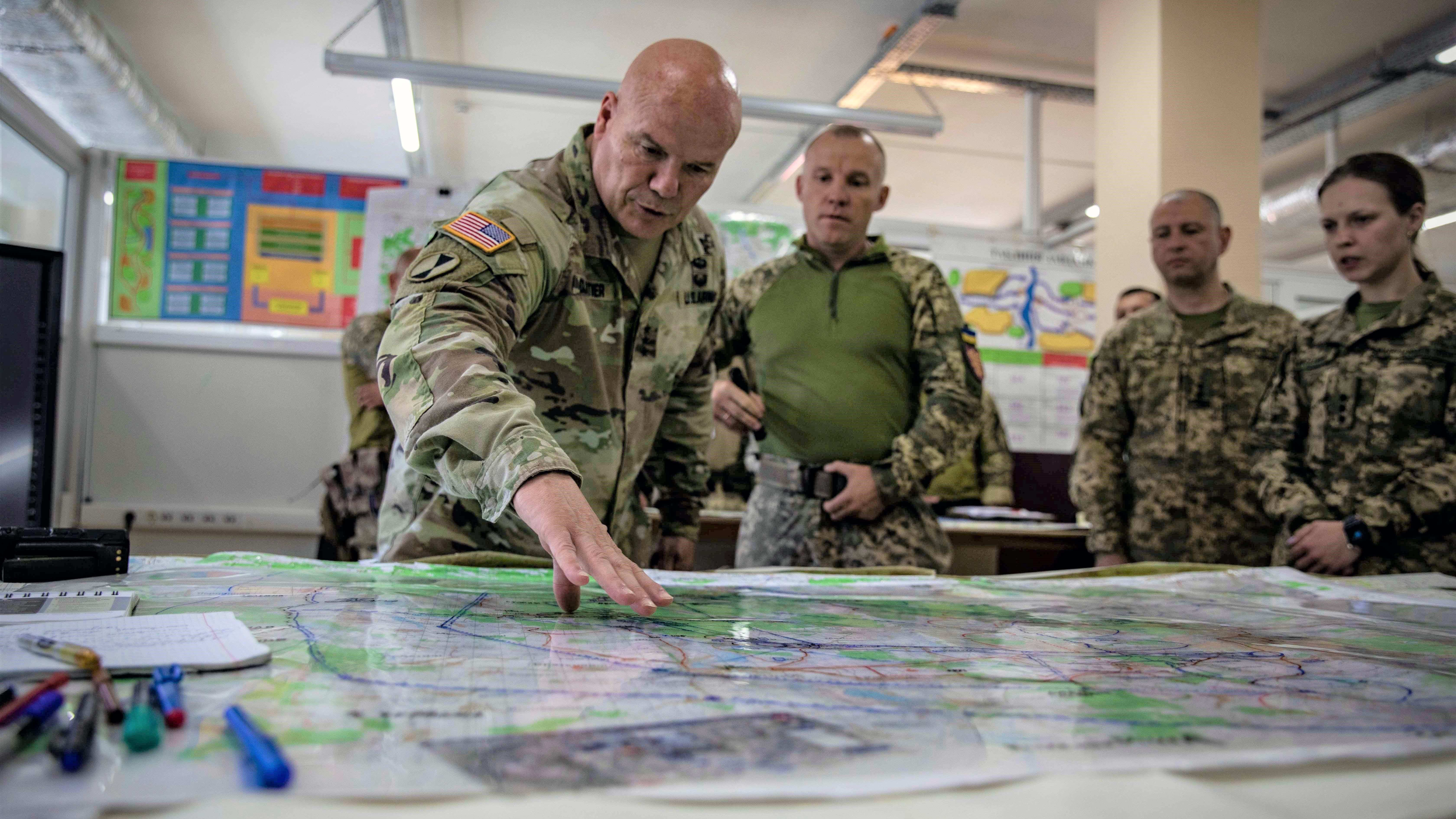Cooperation, Readiness Critical to US, NATO Alliance
Cooperation, Readiness Critical to US, NATO Alliance

The U.S. and NATO must continue to strengthen its partnership as the world enters a “period of potential instability,” America’s top uniformed leader said.
“In my view, the world is entering a period of potential instability as some nations ... and clearly terrorist groups and perhaps some rogue actors are seeking to undermine and challenge the existing international order,” Joint Chiefs Chairman Gen. Mark Milley said. “And they seek to weaken the system of cooperation and collective security that has been in existence for some time.”
Speaking July 15 in a ceremony aboard the USS Kearsarge to celebrate NATO’s newest operational headquarters, Joint Force Command Norfolk in Virginia, Milley emphasized NATO’s role in maintaining security and called it “the most successful military alliance in human history.”
“NATO is still very much a vital and critical part of our regional security framework and indeed our global security framework,” Milley. “In fact, in my view, it's the linchpin that holds together the period of great power peace that we are now enjoying.”
Milley also stressed the importance of maintaining readiness and modernizing for the future, calling them keys to ensuring the U.S. can meet future defense challenges.
“We have to maintain the readiness of the present, we have to modernize for the future,” Milley said. “We are ready right now. Those who think we are not are mistaken, and any adversary that seeks to challenge the United States military resolve will do well to respect this military and our alliance and NATO.”
In particular, Milley stressed that the incorporation of new technology will play a vital role in the military’s readiness capabilities over the next decade and said that technology, like precision munitions, artificial intelligence and biotechnology, will “have a fundamental impact on the conduct of war.”
Should the U.S. military not lean into technological advances, Milley gave a grim warning.
“There's a whole set of technologies that are driving fundamental change, and if we, the United States military, and we, NATO as an alliance, do not adapt and adopt these technologies, if we don't … put the pedal to the metal and do this right over the next 10 or 15 years, we are condemning a future generation to what happened 76 years ago.”
Moving forward, Milley emphasized that continued cooperation will be a key part of maintaining U.S. readiness, adding, “We as an alliance are stronger together than we are individually.”
“We're going to succeed or fail as a nation with our allies and partners, because the United States does not fight wars alone,” Milley said.

